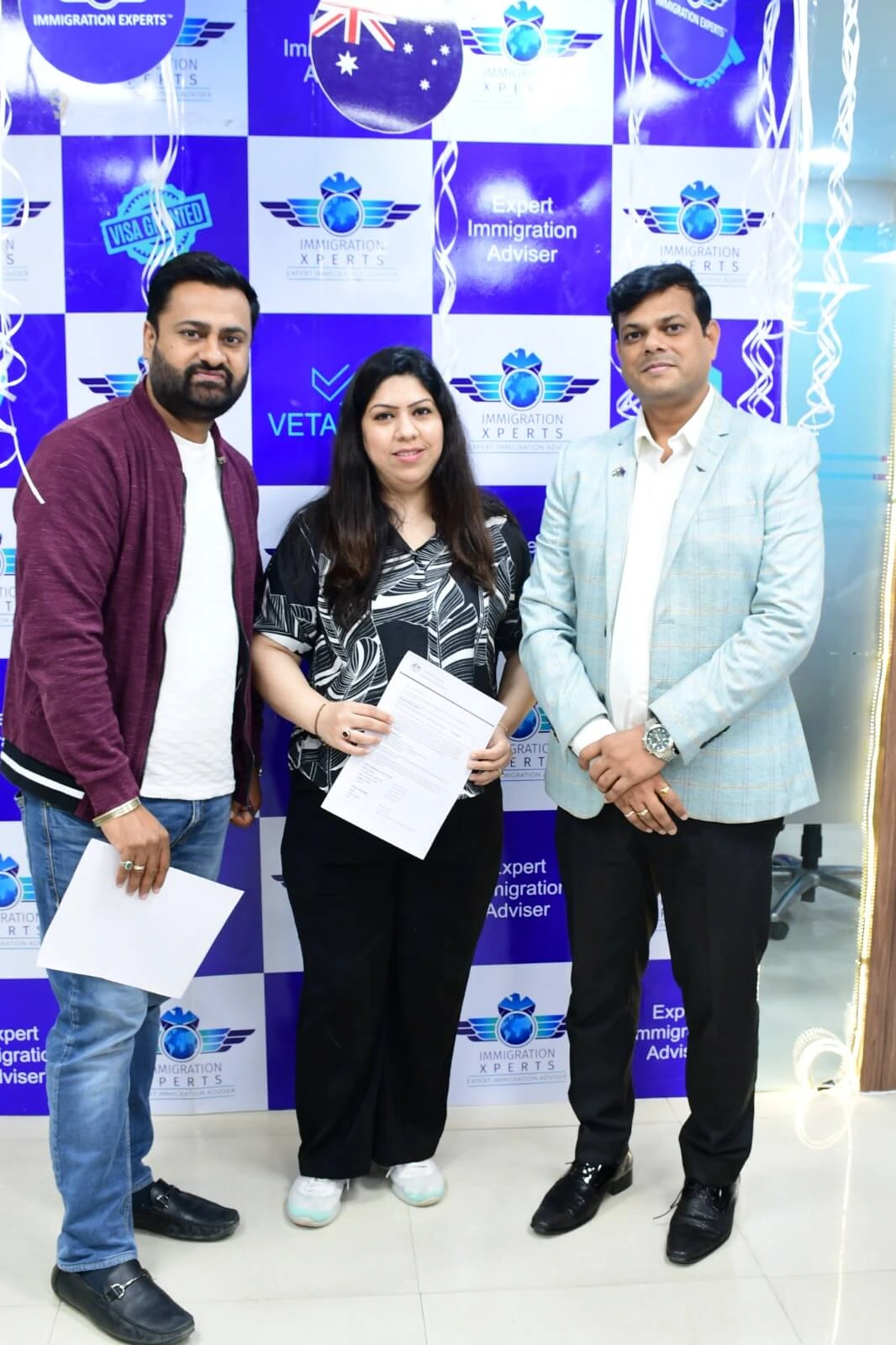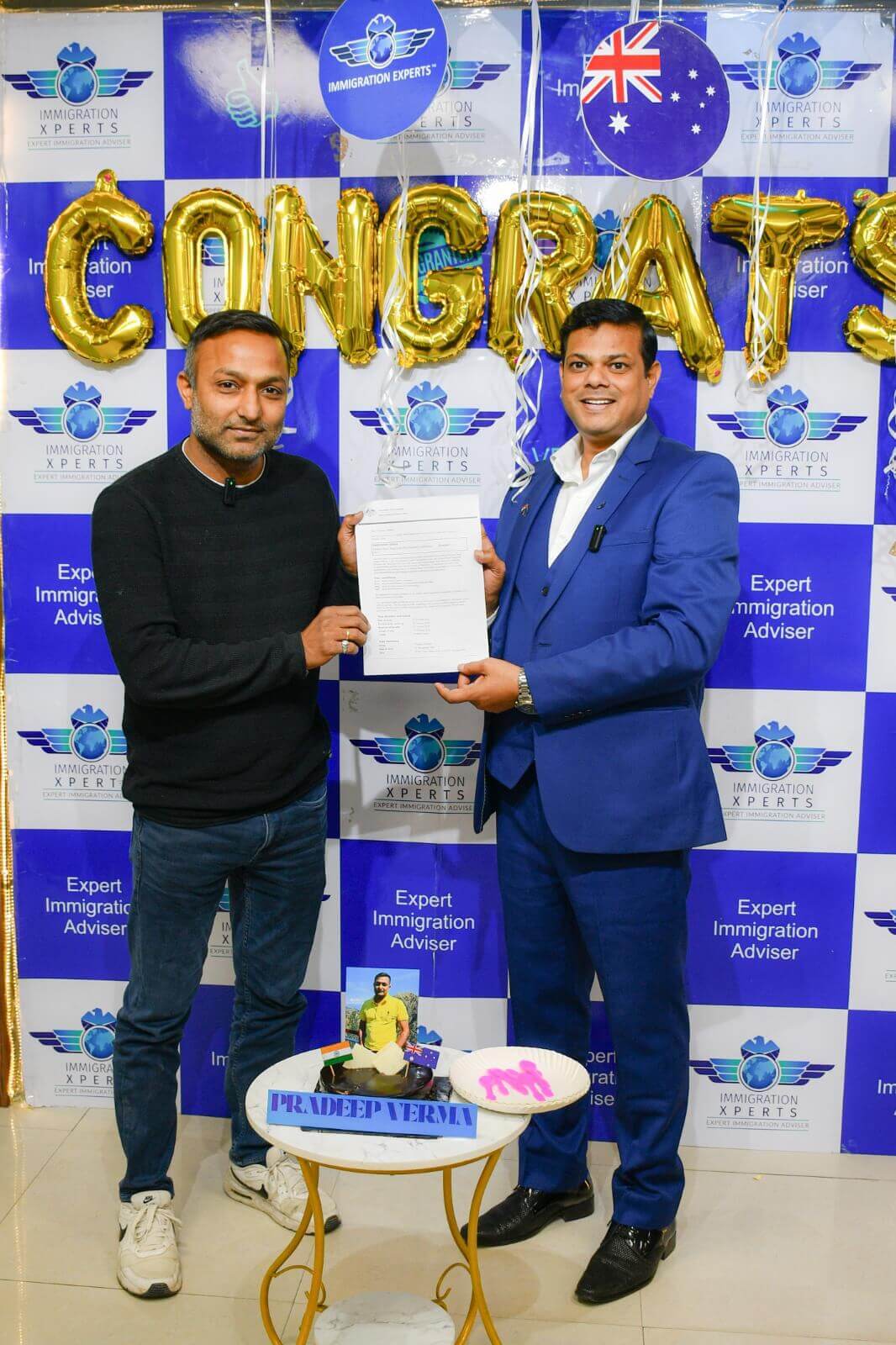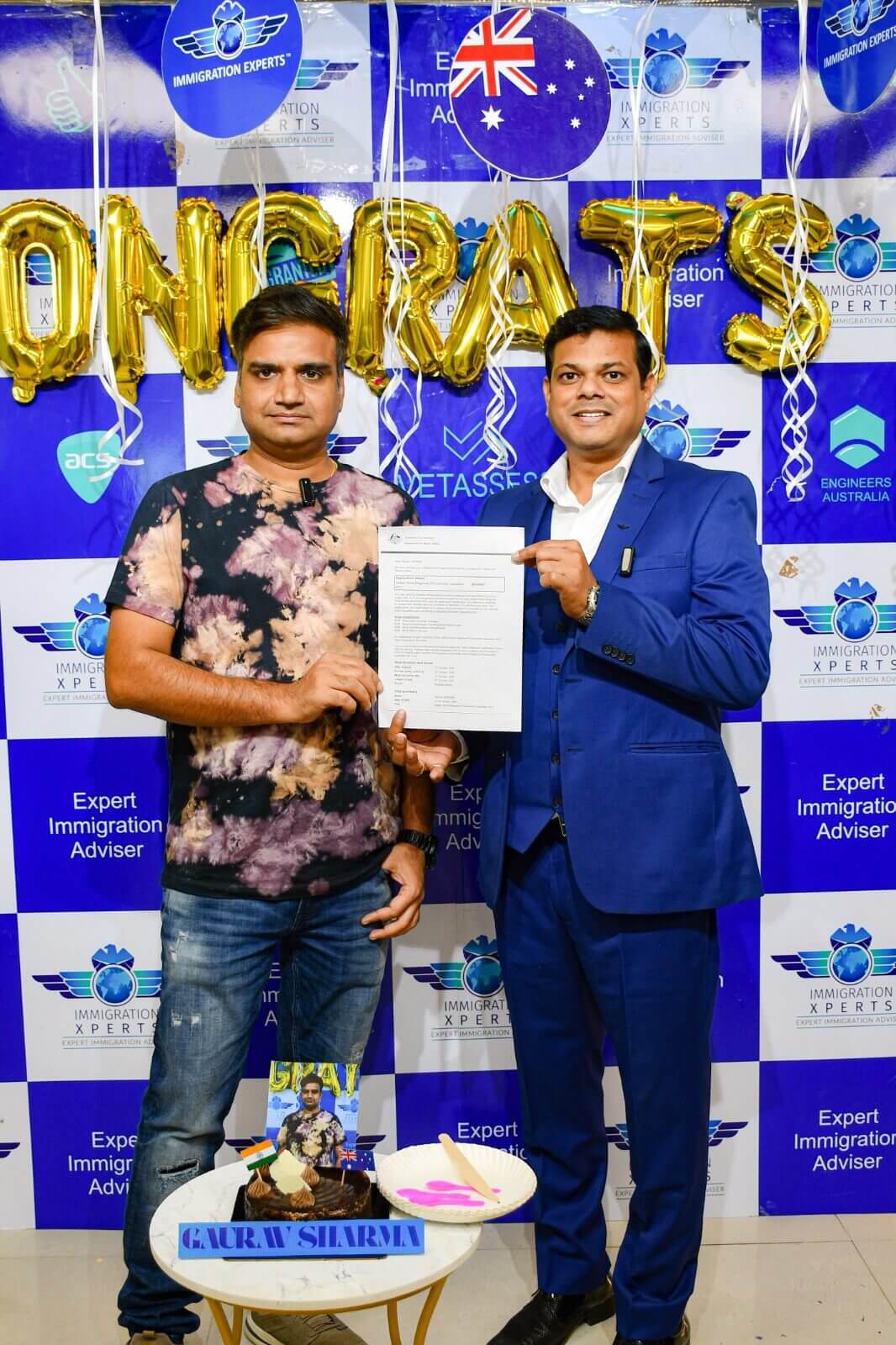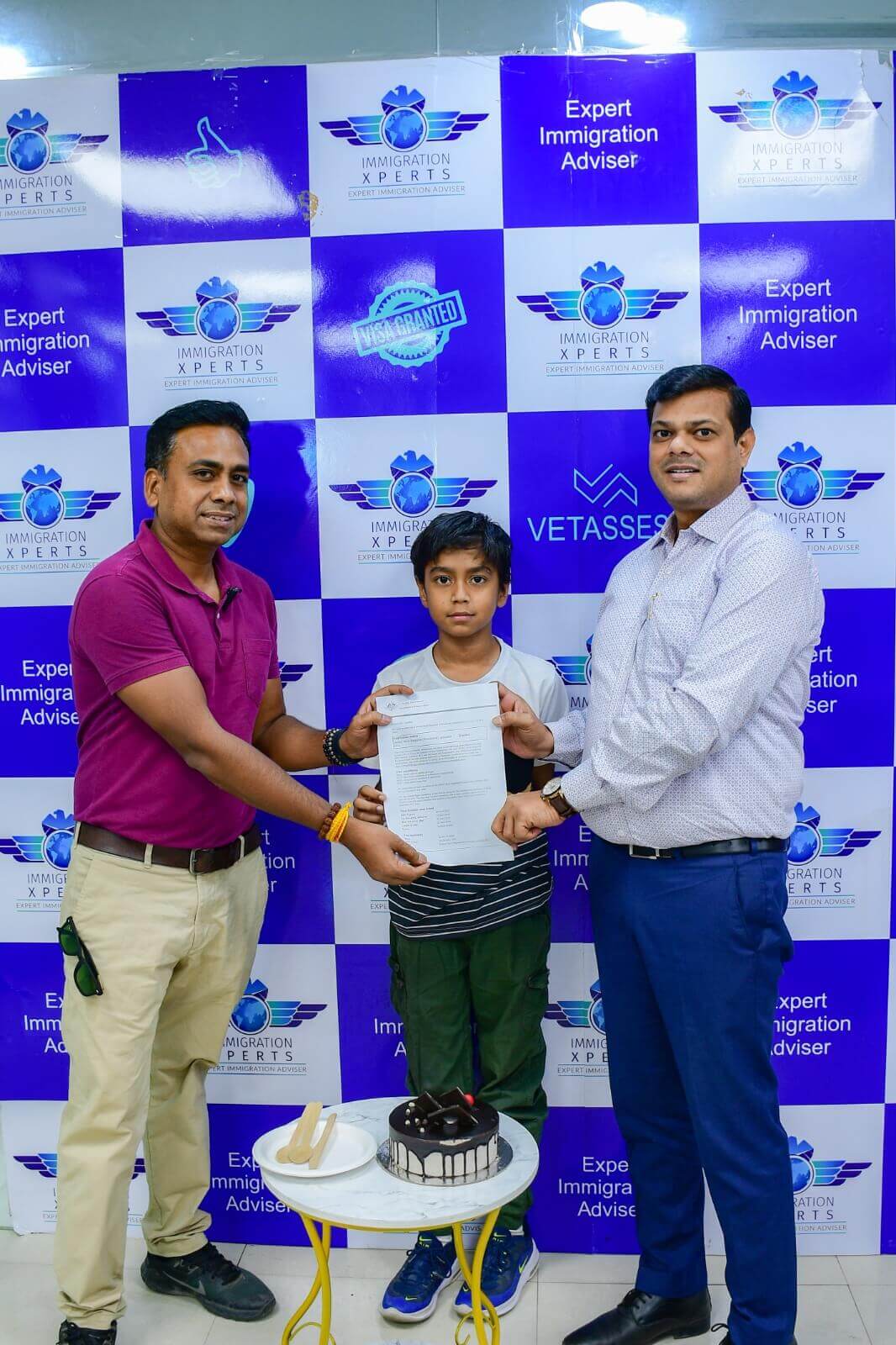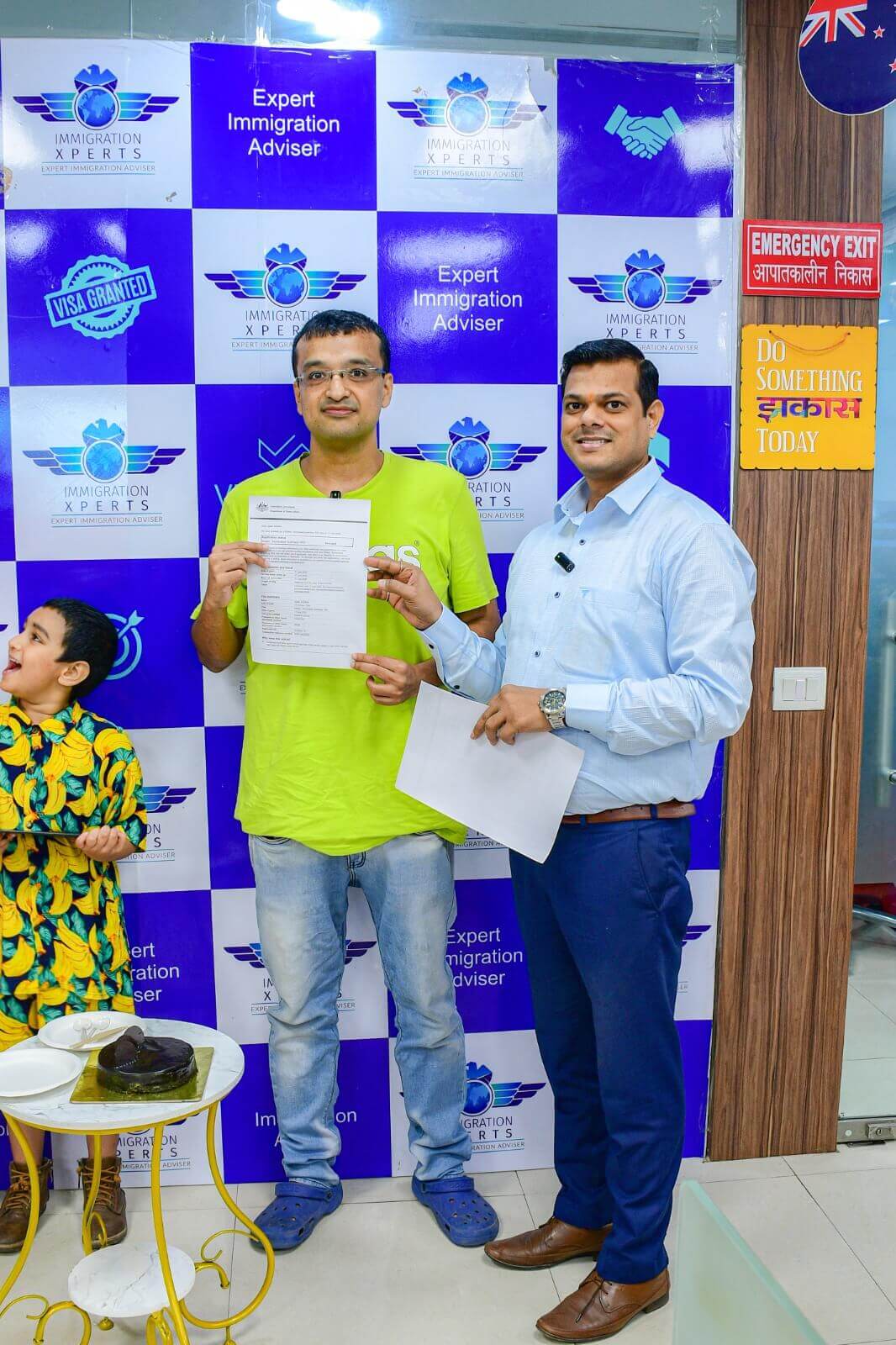Move to Canada with Your Partner
Canada values family reunification and provides a dedicated pathway for couples through the Spousal and Common-law Partner Visa Program. This program allows Canadian citizens and permanent residents aged 18 or older to sponsor their spouse or partner for Permanent Residency (PR), helping families stay together and build a future in Canada.
Unlike skilled migration programs, this visa focuses on the genuineness of the relationship rather than points, education, or work experience. Whether you’re married, living together in a common-law relationship, or in a long-term conjugal relationship, Canada’s sponsorship program offers a clear route for you to live with your loved one.
Once approved, the sponsored spouse or partner becomes a Permanent Resident, with the right to live, work, or study anywhere in Canada. After three years of residence, they can apply for Canadian citizenship, enjoying all the rights and privileges of being a Canadian.
What is a Spousal and Common-law Partner Visa?
The Spousal and Common-law Partner Visa is part of Canada’s Family Sponsorship Program, designed to unite couples. It allows a Canadian citizen or permanent resident to sponsor their legally married spouse, common-law, or conjugal partner for permanent residence in Canada.
This visa category has two main types:
- Inland Sponsorship: For couples already living together in Canada (the foreign partner holds a valid temporary visa).
- Outland Sponsorship: For partners living outside Canada during the application process.
Inland applicants can also apply for an Open Work Permit, allowing them to work while their application is being processed.
Who Can You Sponsor?
You may sponsor the following under this category:
- Legally married spouse: opposite or same-sex
- Common-law partner: must have lived together continuously for at least 12 months
- Conjugal partner: if unable to live together due to legal, immigration, or social barriers
- Dependent children: under 22 years old, unmarried and not in a common-law relationship
Eligibility to Become a Sponsor
To sponsor your spouse or partner, you must meet these conditions:
- Be at least 18 years old
- Be a Canadian citizen, permanent resident, or registered Indian under the Canadian Indian Act
- Reside in Canada, or show intent to return once your partner becomes a PR
- Not receive social assistance, except for disability support
- Be able to financially support your spouse or partner for basic needs such as food, clothing, and accommodation
- Agree to provide financial support for three years after your spouse or partner becomes a PR
Who Cannot Sponsor a Spouse or Partner?
You are not eligible to sponsor if:
- You are under 18 years old
- You became a PR through spousal sponsorship less than five years ago
- You are bankrupt or under a removal order
- You are a temporary resident (visitor, student, or worker)
- Your own PR application is still being processed
- You are still financially responsible for a previous sponsorship within the 3-year period
- You are serving a prison sentence or convicted of certain offences related to domestic violence or sexual crimes
Documents Required for a Spousal or Common-law Partner Visa
Applicants from India or abroad should prepare the following:
- Marriage certificate or proof of common-law relationship (cohabitation for 12 months)
- Proof of relationship (photos, chat logs, call records, social media exchanges, travel history, joint finances)
- Proof of intent to live together in Canada after visa approval
- Sponsorship agreement and undertaking form confirming financial support
- Identity and civil documents (passports, birth certificates, police certificates)
- Medical exam report from an approved physician
- Biometric submission (fingerprints and photo)
Latest Update (2025):
Applications are now fully digital. All forms and documents must be uploaded through IRCC’s online portal, and processing is assisted by automated systems for faster verification. Ensure clear, legible, and properly named document uploads to prevent delays.
How to Apply for a Spousal or Common-law Partner Visa
Applying for a Spousal or Common-law Partner Visa involves several important steps. Follow this process to ensure a smooth and timely application:
-
Check Eligibility:
Confirm both you (the sponsor) and your partner meet IRCC’s criteria, including relationship authenticity and financial support requirements. -
Gather Required Documents:
Collect all supporting documents — proof of marriage, cohabitation, communication, and intent to live together in Canada. -
Create an Online Account:
Submit your sponsorship and PR applications through the official IRCC online portal. Paper applications are no longer accepted unless special circumstances apply. -
Pay Application Fees:
Pay the applicable sponsorship, processing, biometric, and Right of Permanent Residence fees online. -
Submit Biometrics:
If applying from outside Canada, your partner must visit a Visa Application Centre (VAC) to provide biometrics within the given timeframe. -
Medical and Police Clearance:
The applicant must complete a medical exam and provide police certificates from every country they have lived in for over six months since age 18. -
Wait for Processing:
- Outland applications: Average processing time is around 15 months.
- Inland applications: Average processing time is around 24 months.
- Delays may occur if documents are incomplete or relationship proof is weak.
-
Receive Visa Decision:
Once approved, your partner will receive the Confirmation of Permanent Residence (COPR) and can travel to Canada as a permanent resident.
Important 2025 Insight:
IRCC has increased scrutiny on relationship authenticity and background checks. Ensure all evidence supports a long-term, genuine partnership. Couples separated by distance (India–Canada) must provide strong proof of ongoing communication and commitment.
Why Choose Apical Immigration Experts?
Choosing the right immigration advisor is crucial for a successful sponsorship application. At Apical Immigration Experts, we simplify the complex process with accuracy, professionalism, and personal care.
- Proven Expertise: Our team of licensed consultants has a strong track record in handling family sponsorship and PR cases with precision and high success rates.
- Tailored Strategies: Every relationship and application is unique. We design personalized strategies based on your situation to maximize approval chances.
- Comprehensive Guidance: From eligibility assessment to document preparation, filing, and post-landing support, we guide you through every stage.
- Updated Policy Knowledge: Our experts stay current with IRCC policy changes, digital application processes, and processing trends to ensure your file meets all latest requirements.
- High Success Rate & Transparency: We maintain open communication and transparent updates, helping clients reunite with their loved ones confidently and efficiently.
Frequently Asked Questions
In 2025, outland spousal sponsorship applications are processed within an average of 15 months, while inland applications may take up to 24 months. The time depends on your relationship proof, country of residence, and document completeness.
Yes. If you apply under the inland sponsorship category, you can request an Open Work Permit (OWP). This allows you to legally work in Canada while your permanent residence application is under review.
A Spousal Visa applies to couples who are legally married, while a Common-law Partner Visa applies to partners who have lived together continuously for at least 12 months. Both categories offer the same PR benefits once approved.
Applications are often refused due to insufficient relationship proof, incomplete documents, or inconsistencies in personal information. Providing strong evidence like joint finances, photos, communication records, and genuine intent to live together improves approval chances.
Yes, Canadian citizens can sponsor their spouse or partner while living abroad, provided they prove intent to return to Canada once the PR visa is approved. However, permanent residents must be physically residing in Canada at the time of application.
